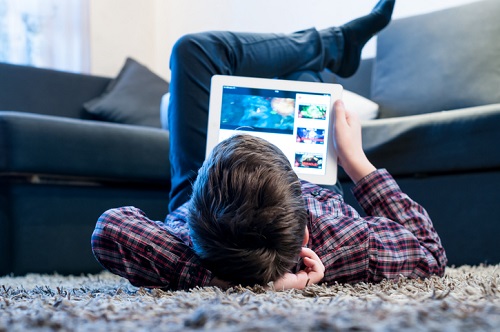
Research has found that Australian teens are the third most sleep deprived in the world and that more than 70% of Australian high school students suffer from regular sleep deprivation.
Teenagers face a three-hour sleep deficit per night on average, but those who spend five hours a day online are 50% more likely to fail meeting their minimum sleep requirements than peers who only spend an hour online each day.
Robyn Treyvaud is a globally recognised expert in online safety and digital citizenship. She says that by understanding a teens’ biological needs, parents will be better equipped to help their teens foster sleep patterns that reinforce their physical and emotional wellbeing.
However, Treyvaud points out, biology is not the only factor working against teens getting sufficient amounts of quality sleep.
“Unfortunately, the attraction and never-ending distractions of ‘being plugged in’ to the digital world at all times can cut into the amount of sleep teenagers receive and have a detrimental effect on their quality of rest as well,” Treyvaud said in an article published on Family Insights,
She says some sleepless teens argue that since they have trouble falling asleep, they might as well indulge in ‘one more game’ or browse their social newsfeed while they wait to feel drowsy.
“However, research consistently shows that light and noise from a digital device can exacerbate a teen’s delayed body clock and block a teen’s ability to fall asleep,” Treyvaud pointed out.
So why are digital devices so intrusive for a night’s sleep?
Treyvaud said that to produce artificial white light, electronic devices such as tablets, smartphones and other devices issue light at short wavelengths that stimulate the retina and inhibit the release of melatonin, which is critical for sleep to occur.
“This disrupts the body’s natural circadian rhythms, which can keep teens awake for longer,” she said.


